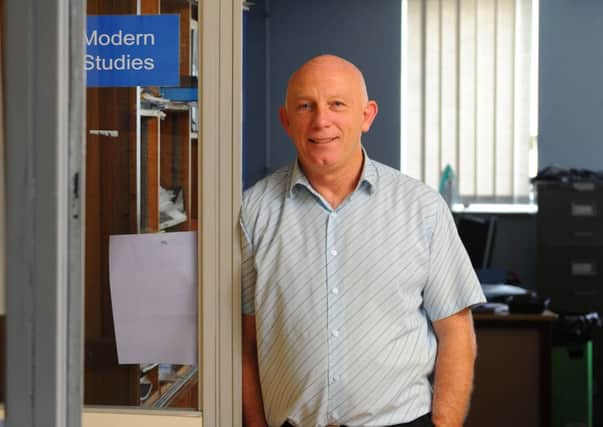Hugh Reilly: Mandarin unlikely to bridge gap


For the next hour or so, the audience lapped up the adventures of Patapouf, a French-speaking puppet character. Stringing us along, Patapouf insisted that we écouter et répéter his every utterance. Marvellously, after less than a year, we could fluently say our names and state our ages.
On moving to secondary school, language learning became a somewhat more turgid affair. For two hours each week, we studied Longmans French language textbooks. Our beloved Patapouf had gone AWOL and been replaced by a Foreign Legion martinet of a teacher who belted the ringleaders of recalcitrant pluperfect tense learners, pour encourager les autres. On completing two years of compulsory Français, I dropped the subject, chucking my beret as I bade adieu. Most of my schoolmates did the same.
Advertisement
Hide AdAdvertisement
Hide AdIn the UK, by the time pupils reach high school they’re aware that English is widely spoken around the world and decide that there’s no point in learning a second language.
Those are not my words, but the thoughts of Professor Antonella Sorace, an expert in early language acquisition and bilingualism. Based at Edinburgh University, she is part of team that is delivering Mandarin lessons to some East Lothian and Edinburgh schools. The Scotland-China Education Network is providing more than 30 native Chinese speakers studying at Edinburgh University.
Professor Sorace believes that children have a natural aptitude and interest in language learning. Doubtless, youngsters will be initially intrigued to learn a language that is totally alien to their mother tongue. Given China’s superpower status and near monopoly in the tat-goods-manufacturing sector, parents will be pushing their issue to learn Mandarin in the hope that it will open up career opportunities. To my knowledge, Amnesty International is always seeking to employ translators to read Beijing court verdicts on human rights activists.
I sincerely wish the project well but, in my view, the notion that Scotland is capable of producing classrooms full of Mandarin speakers is a tad wishy-washy. It would take a great leap forward of the imagination to believe kids who have rejected European languages in their droves would maintain interest in learning Chinese.
Romance languages such as French, Spanish and Italian share the same letters as English, yet our youngsters struggle to utter more than a few trite phrases after years of being exposed to these languages. If they cannot master these tongues, what hope is there of them coping with a tongue that depends on tone for understanding? To consider that Mandarin could be part of the government’s ambition that our polyglot children speak two languages other than English by 2020 is patently ludicrous.
In my opinion, it’s mere tokenism. There would have to be something of a cultural revolution if the number of SQA candidates sitting Higher Mandarin were ever to top those studying Urdu or, heck, Gaelic.
In truth, Scotland’s education system has vacillated between supporting language learning and abandoning it. Traditionally, only the crème de la crème were permitted to study languages beyond S2; indeed, until the early 1970s, an entry qualification to most Scottish universities included a higher qualification in a foreign language. In the early 1990s, some bright spark hit on the idea that language learning should be force-fed until the end of S4. A decade or so later, given a free rein to configure curriculums that best served the needs of their schools, many headmasters restored language learning to its previous “optional” status.
Apologists for language learning will trot out the usual reasons why it’s imperative our youngsters are dragooned into studying a language such as Mandarin. My favourite is the belief that bilingualism helps fend off dementia. Well, according to scientists, doing crosswords and Sudoku have the same beneficial neurological effects, yet there is no demand that such activities become part of the school day.
The faddism of learning Mandarin will be exposed when the Chinese economic bubble bursts. Learning Hindi may prove a better bet.